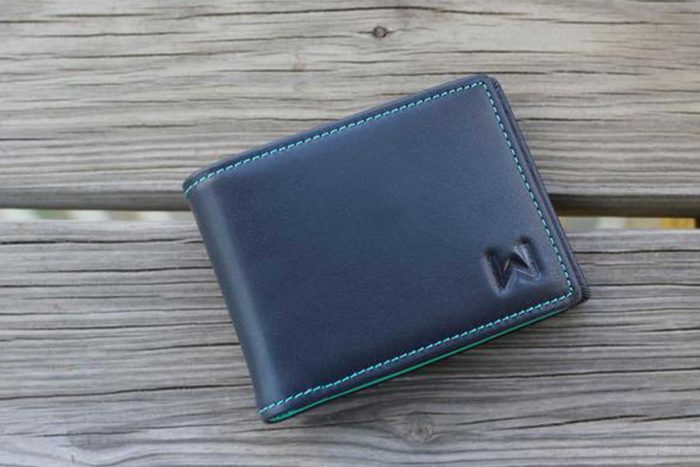
Keep your identity safe
It’s important in this day and age to keep your identity safe, both online and in real life. That means having strong passwords for your online accounts and knowing what to put in your wallet–and what to keep at home. Read on to learn what you should never keep in your wallet.
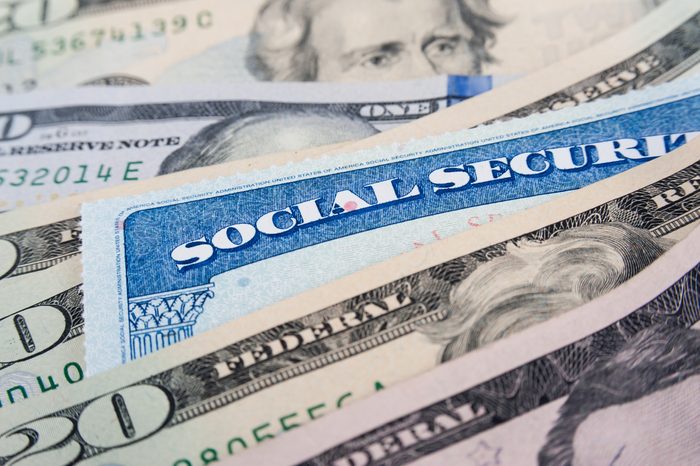
Social Security card
A big no-no: Stowing your Social Security card or number inside your wallet. “Social Security cards and the number itself are one of the most valuable pieces of information in the hands of a thief,” says Eva Velasquez, president and CEO of the Identity Theft Resource Center. “With it, they can easily file taxes on your behalf, open a line of credit in your name, receive medical attention, or even commit crimes using your information.” If your wallet is stolen with your SSN inside, immediately report the theft to the Social Security Administration.
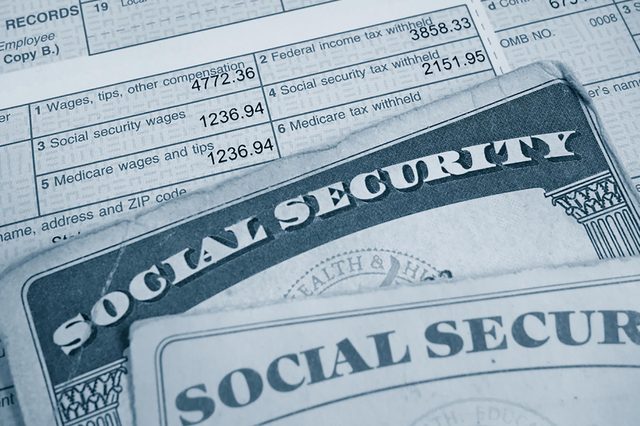
Medicare card
Even if you aren’t carrying your Social Security card itself, your SSN might show up on an even more common culprit: a Medicare card. Old Medicare numbers, which are valid until January 2020, are just your Social Security number with one or two letters and numbers tacked on—not too hard to decode. To avoid giving out one of the most serious numbers a hacker can steal, only carry your card when you have a medical appointment, says Adam Levin, founder of global identity protection and data risk services firm CyberScout and author of Swiped. “All other days you make a Xerox copy of it, wipe out all but one or two numbers, and on the back write the [phone] number of an emergency contact,” he says. That way, rescuers will still be able to get the information they need during an emergency.
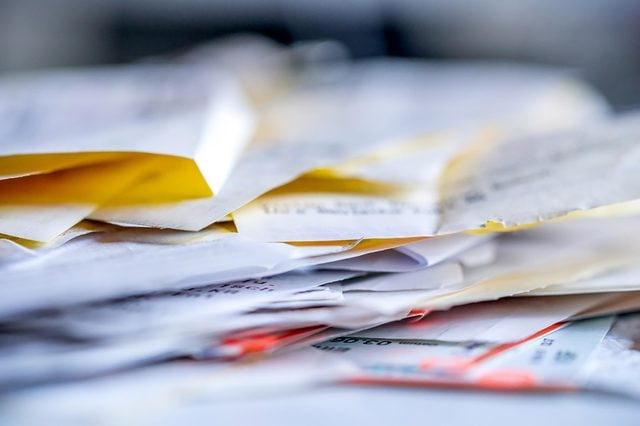
Receipts
At first glance, a store or bank receipt doesn’t seem to carry much information. But a skilled crook can use those bits of information to steal your money more effectively, says Levin. For instance, someone who sees a bunch of receipts from weekday evenings at Target could shop there on a Monday night without looking suspicious to the credit card company. Or your credit card’s customer service department might be more likely to believe a crook who happens to know all your recent purchases. Or a phisher could pose as your favorite restaurant via email, putting malware on your computer when you click a link. “Why have a data point that, if someone could get their hands on that, would enable them to know just one more piece of the puzzle?” says Levin. “If I don’t need it, don’t throw it away—shred it.” Instead of stuffing receipts into your wallet after every purchase, ask to receive a copy via email, or store printed receipts digitally using apps like Shoeboxed.
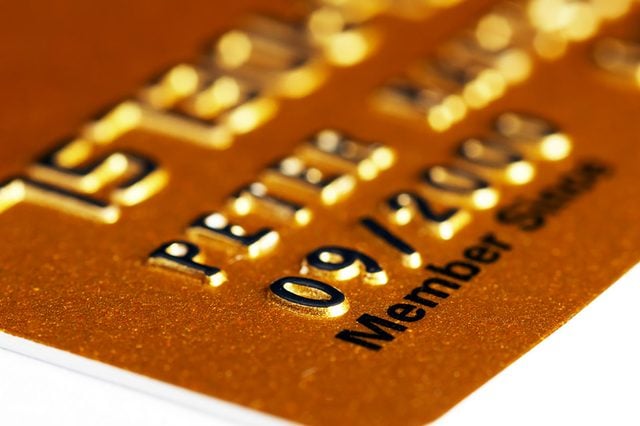
Membership cards
If you make a habit of saving money at Costco or getting to the gym often, good for you! But now for the catch: You shouldn’t be keeping your membership cards in your wallet. If someone got a hold of your wallet, the thief could use those cards to get into the gym and superstore, and each would be one more card you’d need to worry about replacing. Keeping those cards in your car is a safer bet, says Robert Siciliano, CSP, the CEO of IDTheftSecurity.com. “I’m not walking to Costco—I’m driving,” he says. “If I need to go, it’s in the car.”
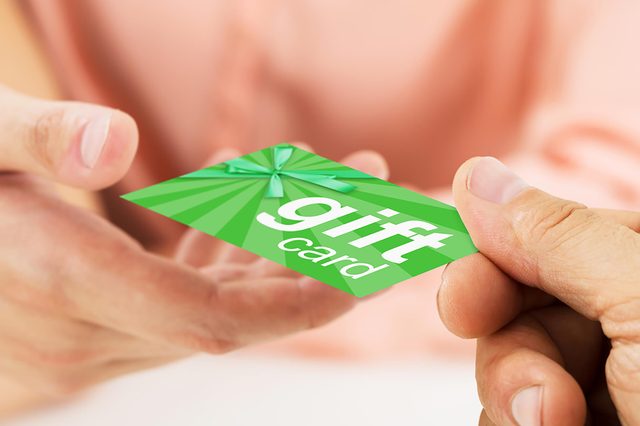
Gift cards
Like cash, you have no way to get money back from gift cards if you lose them. “It’s a sitting duck,” says Levin. “This is cash. You don’t even need to show an ID to use them.” You wouldn’t carry around hundreds of dollars in cash, so you shouldn’t risk losing a big stack of gift certificates either. Only tuck them in your wallet when you know you’ll use them, says Levin. Learn about these 12 items you should never carry in a purse too.
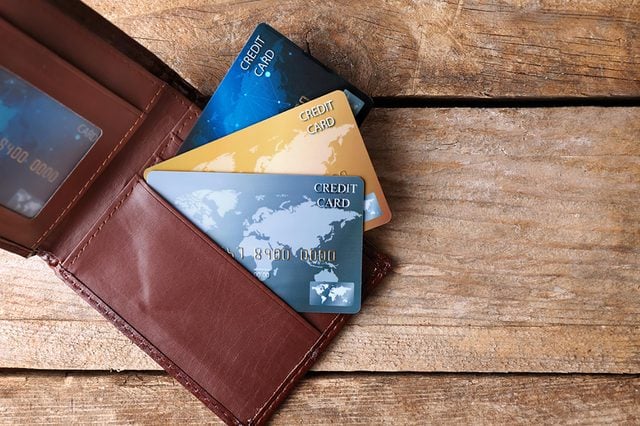
More than a few credit cards
You’ve got a credit card for your favorite department store, another for air miles, another for hotel points—the list goes on and on. But having a million cards isn’t the best idea; Siciliano and Levin both recommend capping it at two or three to avoid identity theft. For one thing, spreading your points out into several different cards, none will add up to anything useful, says Siciliano. An even bigger risk, though? The more cards are in your wallet, the more damage a thief can do quickly, says Levin. He recommends carrying just one credit card and a debit card, and leaving the rest at home. “If they all get stolen, the bank is not going to get them back to you in an hour and a half,” he says. Keeping them separate will give you a safety net, as long as you don’t swipe them for these 10 times you should never use a credit card.
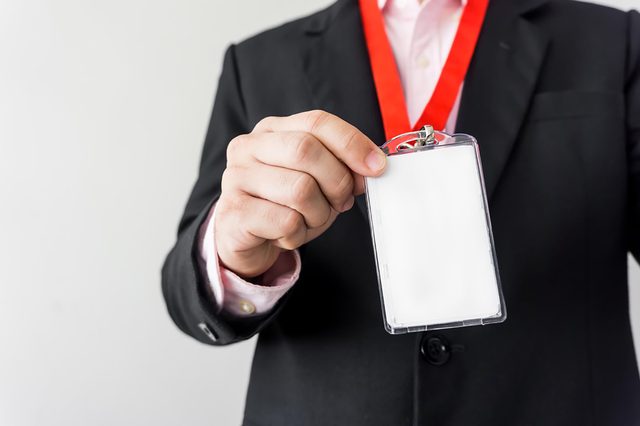
Your work ID
If your work ID lets you swipe in to get office access—especially during odd hours of the night—your business could be at risk if your wallet goes missing. Giving a thief access to the building could get both you and your employer in trouble, says Siciliano. He recommends using one wallet for your 9-to-5 and another for the weekends. This is why many retailers don’t accept American Express.
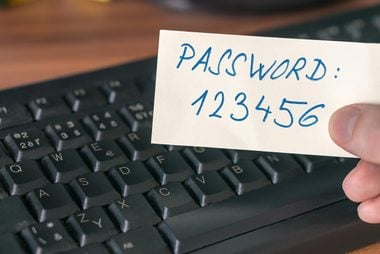
Passwords
About 67 percent of people write their passwords down on a piece of paper, according to a survey by the Pew Research Center, but keeping a running list of your passwords, PINs, and alarm codes in your wallet is just asking for trouble. “It wouldn’t take somebody more than a few minutes to figure out what those numbers are,” says Levin. “Why be an unwilling co-conspirator in the theft of your own identity?” Siciliano recommends using a password manager on your phone or computer instead. The app stores all your passwords for you, so you can make a different obscure one for every account without needing to memorize them all. Avoid these passwords that hackers will guess first.
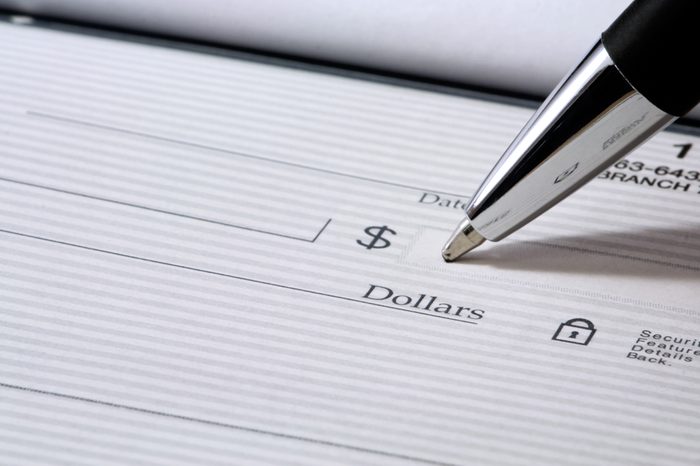
Blank checks
Criminals can do a lot more with a blank check than you might think. For starters, they can easily counterfeit the checks in order to tap into your checking account, says Steve Weisman, author of Identity Theft Alert. They can also use the bank account and routing numbers on the check to withdraw money electronically, which is faster and harder to track. The smarter move is to carry only one or two checks when you know you will need them, leaving the rest safely at home. These are the 10 things you should do ASAP if your wallet is lost or stolen.
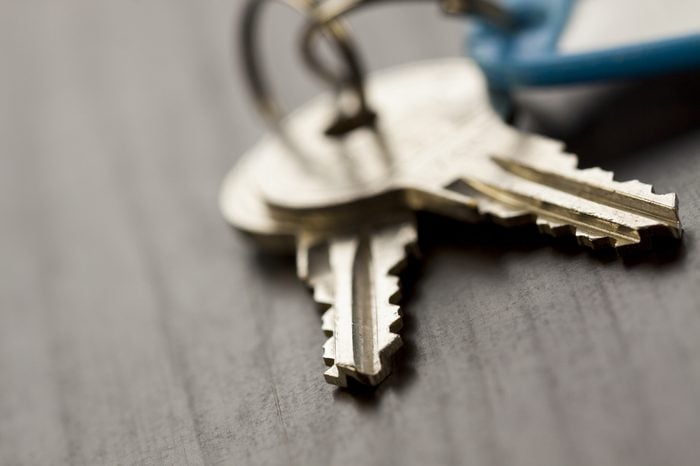
Spare keys
Beware of toting around spare house keys in your wallet—it’s an open invitation for thieves to break into your home, experts say. All the crooks have to do is find your address on your driver’s license, and they will instantly have access to everything inside your house. Financial advising site Kiplinger suggests leaving spare keys in the care of a relative or friend instead. Here are 9 small ways to never lose things again—including your keys.
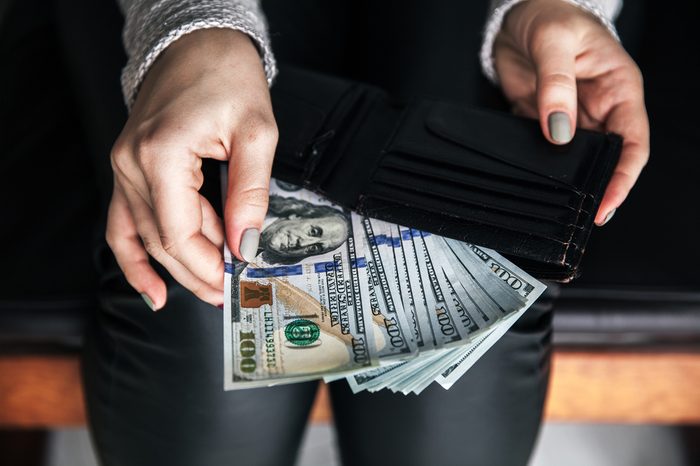
Too much cash
Rolling with a big wad of cash in your wallet could make you a tempting target for thieves. Instead, consider keeping a slim stash of five and ten-dollar bills for emergencies only. If your cash-filled wallet is stolen or lost, you should file a police report ASAP. “You may never get your wallet back, but filing the reports helps to document that the theft occurred and can be useful in proving that you were a victim of fraud if your credit card or other documents were used for fraud or identity theft purposes,” Weisman says. Keep your money safe by learning the 18 things pickpockets don’t want you to know.
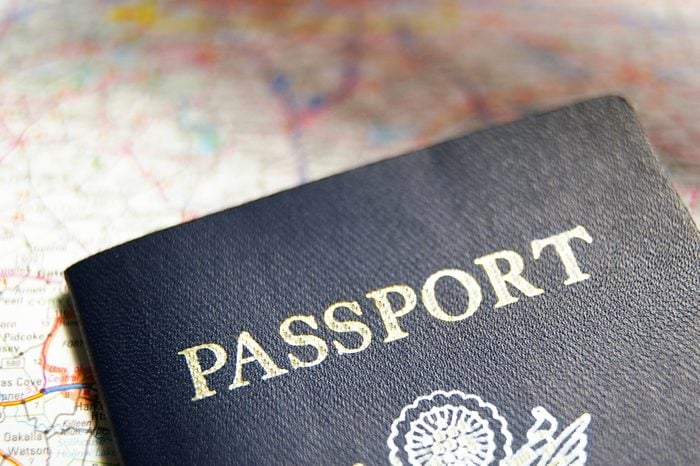
Passport
Unless you are crossing national borders, your passport should stay in a safe deposit box or another secure place. And even when you travel abroad, it’s good practice to make a copy of your passport and leave the real one locked in the hotel safe, identity theft experts say. Criminals can use a stolen passport to travel in your name, get a new copy of your Social Security card, or open bank accounts, according to kiplinger.com. This is why you should never throw out an expired passport.
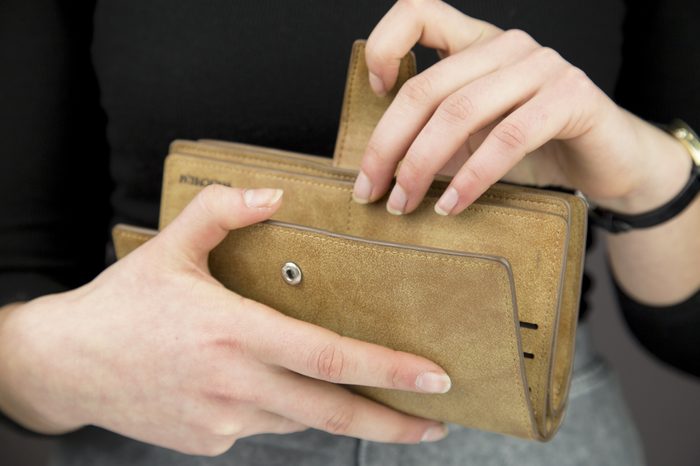
Birth certificate
The same rules used for your passport should apply to your birth certificate too. Store it in a safe deposit box, and only bring it out for special cases like closing a mortgage or getting a new driver’s license. As an added precaution, Weisman suggests making photocopies of all of the contents of your wallet ahead of time so that you know exactly what was stolen. Make sure you know these other 26 secrets that identity thieves don’t want you to know.
Sources:
- Eva Velasquez, president and CEO of the Identity Theft Resource Center
- Adam Levin, founder of CyberScout and author of Swiped
- Robert Siciliano, CSP, the CEO of IDTheftSecurity.com
- Pew Research Center: “Password management and mobile security”
- Steve Weisman, author of Identity Theft Alert
- Kiplinger: “Worst Things to Keep in Your Wallet”
